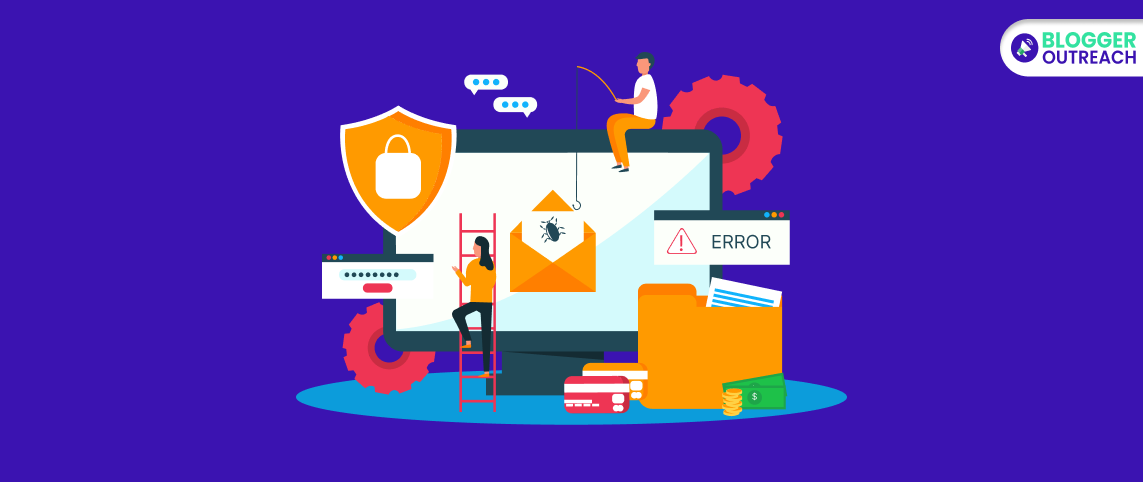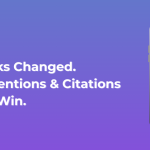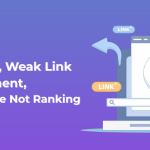Table Of Content
- 1 What Separates Good Backlinks From Toxic Backlinks?
- 2 Get Rid Of These 8 Toxic Backlinks
- 2.1 Toxic Backlinks #1: Excessive Link Exchanges – A Tangled Web
- 2.2 Toxic Backlinks #2: Automated Programs – The Shortcut To Nowhere
- 2.3 Toxic Backlinks #3: Forced Links- A Questionable Approach
- 2.4 Toxic Backlinks #4: Text Advertisements – Balancing Act Required
- 2.5 Toxic Backlinks #5: Low-Quality Directory And Bookmark Site Links
- 2.6 Toxic Backlinks #6: Hidden Or Low-Quality Widget Links – A Stealthy Trap
- 2.7 Toxic Backlinks #7: Widely Distributed Footer Links – Proceed With Caution
- 2.8 Toxic Backlinks #8: Forum Comments – Mind Your Links
- 3 Our Verdict – Should You Buy Backlinks?
Any link that tries to manipulate the search results is a toxic backlink.
Google is getting smarter daily. So, if you are still relying on those ill practices, it’s time to step back.
In fact, the search engine loves natural links that are earned through quality content, not manipulated. So, if a link appears to manipulate the search results, Google will penalize it.
So, what type of links should you avoid?
In this article, we will shed light on the 8 types of toxic backlinks you should avoid.
But before we get into the strategies, you need to understand the difference between toxic backlinks and good backlinks.
Lastly, we’ll talk about paid links and whether you should buy backlinks (our take on this). So, without further ado, let’s start!
What Separates Good Backlinks From Toxic Backlinks?

Link building success comes from knowing your allies and enemies. Build a solid understanding of the crucial difference between good and toxic backlinks. Let’s break down the features that set them apart.
Quality Backlinks: Enhancing Your SEO Arsenal
A quality backlink is like a trusted ally in the digital realm.
✅Firstly, it’s all about relevance. Your travel blog wouldn’t find much value in a backlink from a site specializing in car repairs. Quality backlinks emerge from sources that share the same industry or subject matter, adding context and credibility.
✅Secondly, authority and trust play pivotal roles. Seek backlinks from reputable, authoritative websites with a robust online presence. These sites boast high domain authority and enjoy positive reputations within their respective industries. Aligning yourself with such sources enhances your website’s credibility in the eyes of search engines.
✅Thirdly, the natural touch matters. Quality backlinks are earned organically, a testament to the value your content provides. They are not the result of manipulative tactics or link schemes but a recognition of your content’s merit. Website owners and content creators, driven by editorial discretion, link to your site because they genuinely believe it adds value to their audience.
✅Finally, think of quality backlinks as pathways to potential traffic. These links have the power to drive relevant visitors to your website. Clicks from these sources are more likely to convert, as users are genuinely interested in what you offer.
Identifying The Culprits: Traits Of Toxic Backlinks
On the flip side, toxic backlinks can be detrimental to your SEO efforts.
❌Begin with irrelevance. Imagine your travel blog being linked from a website focused on car parts—it’s a mismatch. toxic backlinks hail from sites unrelated to your industry, niche, or content, lacking the contextual harmony that defines quality links.
❌Low authority and trust are warning signs. Toxic backlinks emerge from websites with low domain authority or sketchy reputations. Engaging with these sites could tarnish your own online standing.
❌Beware of manipulative tactics. Toxic backlinks often result from dubious practices like link farms or paid links. Such shortcuts violate search engine guidelines, risking penalties that could harm your website’s ranking.
❌Toxic backlinks reside on websites with poor-quality, duplicate, or irrelevant content. Associating your site with these sources undermines your credibility. Content quality matters too. Considering the bigger picture, toxic backlinks signal trouble to search engines. They cast shadows on your website’s reputation, potentially leading to lower rankings or even manual penalties.
Get Rid Of These 8 Toxic Backlinks
We expect that the above information gives you enough clarity on good and toxic backlinks. Now, let’s come to the point.
Now, let’s talk about what you need to avoid at all costs when it comes to backlinks.
Toxic Backlinks #1: Excessive Link Exchanges – A Tangled Web

The practice of buying or selling links, often fueled by the desire for quick ranking gains, is a perilous journey.
While link exchanges can be beneficial, an excess of reciprocal links can raise red flags. Instead of pursuing a high quantity of links, prioritize quality and relevance. Seek out partnerships with reputable websites in your industry.
Ensure that links are integrated naturally within content and provide value to users. Moderation is key; avoid excessive link exchanges and focus on building meaningful connections.
This tactic not only violates Google’s guidelines but can lead to severe penalties, negatively impacting your website’s credibility.
How To Avoid:
- Embrace organic link building through quality content.
- Focus on building relationships for natural link growth.
- Discourage any form of link exchange that involves financial transactions.
Toxic Backlinks #2: Automated Programs – The Shortcut To Nowhere

Automating link creation is tempting as it promises quick and effortless results. However, Google’s algorithms are adept at detecting artificial link-building tactics.
Utilizing automated programs or services to generate links to your site can result in penalties and a plummet in search rankings.
How To Avoid:
- Prioritize manual link building for authenticity.
- Regularly audit your backlink profile to identify and disavow automated links.
- Educate your team about the dangers of relying on automated link-building tools.
- Moreover, invest time in developing a comprehensive content strategy.
- Create valuable, shareable content that resonates with your audience and naturally attracts links.
- Organic growth may take time, but it is a sustainable and effective approach.
Toxic Backlinks #3: Forced Links- A Questionable Approach

Requiring a link as part of a contract, Terms of Service, or any similar arrangement raises ethical concerns. Google focuses on the importance of allowing third-party content owners the choice of including outbound links. Failing to provide this choice not only goes against best practices but may also lead to negative repercussions.
How To Avoid:
- To avoid this, prioritize voluntary link placements. Establish partnerships based on mutual benefit, where both parties see value in the link exchange.
- Ensure that any agreements related to link placement allow for the third party’s choice in qualifying the outbound link. Transparency and collaboration are key to maintaining a positive SEO profile.
- Let third-party content owners decide on including outbound links voluntarily.
- Ensure transparency and fairness in any contractual link agreements.
Toxic Backlinks #4: Text Advertisements – Balancing Act Required

While advertorials and native advertising can be effective marketing strategies, they become problematic when they involve links created solely for ranking benefits. Accepting payment for articles that include links passing ranking credit or manipulating anchor text in guest posts and press releases violates Google’s guidelines.
How To Avoid:
- Clearly differentiate between editorial content and sponsored material.
- Secondly, refrain from using advertorials or native advertising solely for the purpose of including links that pass ranking credit.
- Maintain transparency in advertising efforts, ensuring that users can easily distinguish between promotional content and editorial content.
- Strive for a balance between promotional activities and adherence to SEO best practices.
- Ensure that any links in sponsored content are marked as nofollow.
- Prioritize the quality and relevance of content over link placement.
Toxic Backlinks #5: Low-Quality Directory And Bookmark Site Links

There is no such thing as a universal directory or bookmark site. Low-quality directory or bookmark site links can harm your SEO efforts rather than boost them. Google recognizes the importance of relevance and quality over sheer quantity when it comes to directory links.
How To Avoid:
- Focus on submitting your site to reputable directories.
- Avoid mass submissions to low-quality directories.
- Regularly audit and disavow any irrelevant or low-quality directory links.
Pro tip: Prioritize directories that contribute to a positive user experience. Directory links are nofollow links. So, they do not contribute to ranking. If you are earning organic links (attracted by content) from directories that – thumps up! Otherwise, don’t indulge in directory link building just for the sake of ranking.
Toxic Backlinks #6: Hidden Or Low-Quality Widget Links – A Stealthy Trap

Widgets can enhance the user experience, but embedding keyword-rich, hidden, or low-quality links in widgets across multiple sites may result in penalties. Google values transparency and user experience, making it essential to be cautious when implementing widgets.
How To Avoid:
- Ensure that all widget links are relevant and add value to the user.
- Disclose any sponsored or affiliate relationships associated with widget links.
- Regularly audit widgets to identify and remove any problematic links.
- Clearly communicate the presence of any embedded links within widgets.

Link building in the footers or templates of various sites might seem convenient, but Google views them as red flags. Such links lack context and relevance, raising suspicions about their authenticity.
How To Avoid:
- Place links within the body content for context and relevance.
- Avoid mass placements of links in footers or templates.
- Prioritize quality over quantity in your link-building strategy.
- Avoid overloading footers with links and focus on maintaining a natural, user-friendly design.
To proceed with caution, ensure that footer links are relevant to the content and contribute to the user experience.
Toxic Backlinks #8: Forum Comments – Mind Your Links

Avoid making forum comments with the intent of tricking Google. Adding optimized links in the post or signature can trigger Google’s penalties.
How To Avoid:
- Participate in forums genuinely to contribute to discussions.
- Use links sparingly and only when they add value to the conversation.
- Avoid keyword stuffing in forum signatures or comments.
To navigate this practice, participate in forums genuinely. Contribute valuable insights to discussions and avoid over-optimizing links in your posts or signatures. Let your contributions speak for themselves, and if relevant, include links naturally within the context of the conversation.
Our Verdict – Should You Buy Backlinks?
Google is strictly against = If you link to me, I’ll link to you in return for money.
But but but…It doesn’t mean paid links are useless. Regarding paid links, people are sceptical because Google doesn’t like them.
But, the TRUTH is…
…almost everyone is selling backlinks nowadays.
In fact, getting links without payment is challenging; everyone values backlinks and won’t give them for free. This is because links from High DA & DR sites can significantly boost your visibility.
Traffic depends on your content’s quality; there’s much to assess.
So, how do you buy backlinks the RIGHT way?
Avoid small websites (that look like link farms) selling toxic backlinks.
Instead, consider working with a reputable agency.
Finally, using diverse link anchors prevents detection, whether the links are paid or organic.
Read Also:








